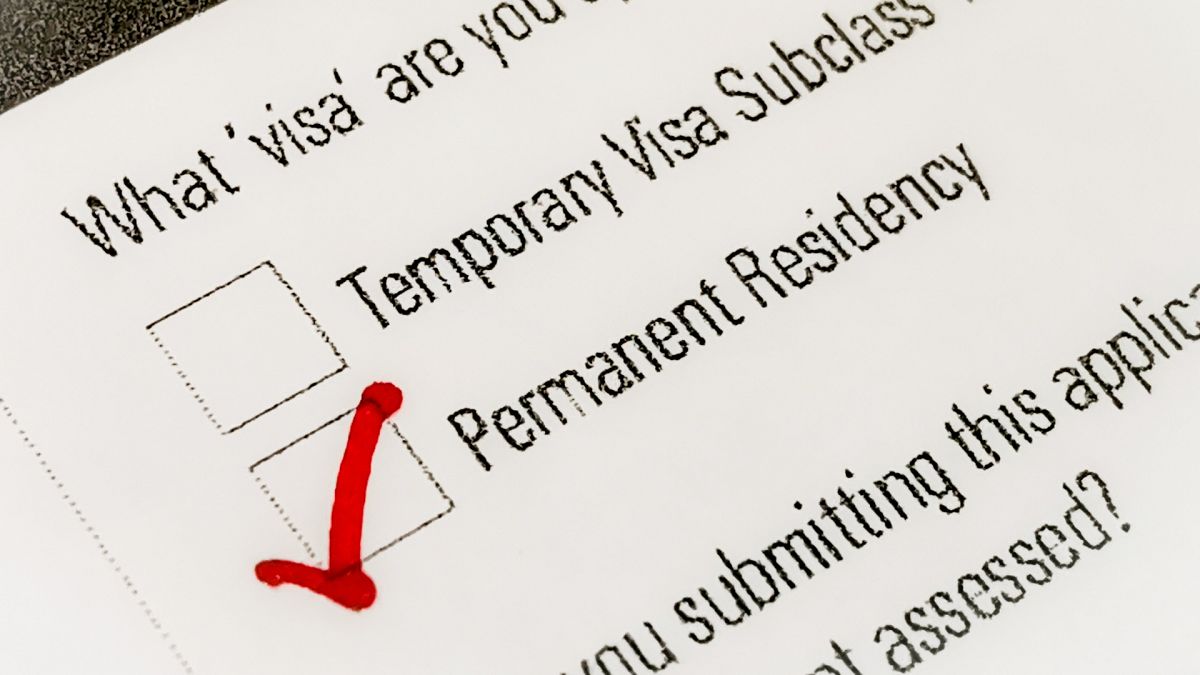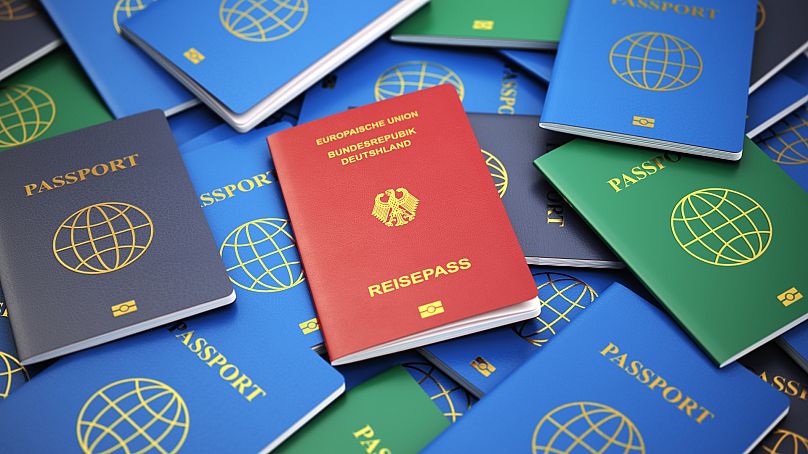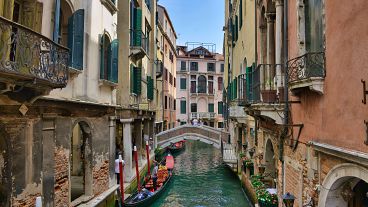From language tests to integration, this is what you need to apply for permanent residency across the EU.
After you’ve put down roots in a country, you may be thinking about making it more long-term by applying for a permanent residency permit.
They often come with more benefits than other kinds of visas and - if you’ve lived there for a few years - might be necessary if you are hoping to drive those roots a bit deeper. Some offer shortcuts to long-term residency via so-called ‘golden visas’ through investing but many of these routes are now being closed.
Though you can get long-term resident status in the EU if you’ve lived there legally for at least five years, most states tend to issue a national permit rather than an EU-wide one. And applying for that can mean extra checks.
From language tests to integration requirements, here’s what applying for a permanent residency permit looks like across five different members of the bloc.
How to apply for permanent residency in France
To apply for a permanent residence permit in France, you’ll need to have lived there for five years - three years if you are the spouse or family member of a French national. This can be on a temporary French visa or as an EU/European Free Trade Association (EFTA) citizen.
You’ll also need to have integrated into French culture and have a sufficient knowledge of the French language (A2 level at minimum) - though this doesn’t apply if you are over 65. Applicants also can’t have a criminal record or any outstanding criminal convictions.
If you are successful and meet the requirements this will allow you to stay in the country indefinitely and access most public services. The permits are usually valid for 10 years but you can renew your card as many times as you need.
A permanent resident card will cost you €225, to be paid using tax stamps which are only sold online.
What’s the difference between permanent residency and citizenship in France?
Both a residency permit and citizenship mean you have the right to study, take up employment, buy a property, take out a mortgage and set up your own business in France. You can also access welfare benefits and the healthcare system. And you have the freedom to leave and re-enter.
The main differences are that you can get a French passport as a citizen, vote in elections and move out of France for unlimited periods of time.
For some, including those whose home country doesn’t allow them to hold dual citizenship, a residency permit might be a better choice. But France itself doesn't require people who obtain French nationality to give up their original one.
How to apply for permanent residency in Germany
Germany also offers permanent residency if you’ve lived in the country for a number of years, starting with some time spent as a temporary resident.
If you aren’t an EU/EFTA national, you need to have had a residence permit for family reunion, study or work before you apply. Usually, you will have to live in Germany for five years to qualify but this can be shorter for some categories of residents like graduates who have worked in a skilled job for two years, skilled workers, civil servants or family members of German nationals.
Also similar to France you will need to have integrated into German society (sometimes this means taking an integration course) and have at least A2 level knowledge of the language. You’ll also need to be able to financially support yourself, have been making pension contributions during your stay and live in accommodation suitable for you and your family.
And you can’t have any major offences on your criminal record.
If you fit these criteria, you can apply for permanent residency at your local immigration office or Ausländerbehörde. It costs €113 as standard, €124 for fast-track through self-employment and €147 for highly qualified professionals.
What’s the difference between permanent residency and citizenship in Germany?
Much like in France, there are a few differences between permanent residency and citizenship in Germany.
Both have full rights to work, study, start a business, access social security, buy a property or take out a mortgage and other kinds of finance. Residency rights last for an unlimited period and you can leave the country as many times as you want.
But those with permanent residency can’t get a German passport, don’t have the right to vote and have fewer citizenship rights for their children. They also can’t leave the country for more than six months.
While qualifying for citizenship used to take eight years, new legislation means you can qualify after five - or three in the case of “special integration accomplishments”. It also eliminates restrictions on holding dual citizenship making a lot more people eligible.
How to apply for permanent residency in Italy
Applying for permanent residency in Italy requires you to have lived in the country for the past five years, or you can apply two years after being married to an Italian national. You can’t have left the country for a continuous period of more than six months or 10 months in total. There are some exemptions to this such as for military obligations, pursuing work in other EU states or retiring to Italy after having lived in the country for at least three years and working during the last 12 months.
You’ll also need proof of health insurance, a clean criminal record and to have passed a language test showing you have at least A2 level of proficiency. Applicants will need to show they have a minimum annual income that is more than the welfare allowance and suitable accommodation.
Applying will cost you €176.46; €100 for the application, €30.46 for the electronic card, €16.00 for the application stamp and €30.00 for the mailing fee. Some groups, like minors, refugees and those receiving medical treatment are exempt from the charge.
What’s the difference between permanent residency and citizenship in Italy?
Like with citizenship, an Italian permanent residency visa gives you the right to study, work, set up your own business or relocate to other EU member states for work or study reasons. You’ll also get access to Italian social security, public housing, social services, education and pension schemes.
But you can’t leave the country for more than six consecutive years. Citizenship comes with additional benefits, including a passport, full voting rights and extra rights for children. And the rules around dual citizenship are pretty relaxed in Italy too meaning you won't have to renounce any other citizenship to get it.
How to apply for permanent residency in the Netherlands
The Netherlands has four different types of permanent residence permits. One for EU/EFTA citizens and their family members, one for non-EU citizens, a long-term residency permit valid in all EU/EFTA countries and a permanent asylum residence permit.
Permanent residency doesn’t expire but you will need to renew your permit every five to 10 years, depending on which kind you have.
In general, you will need to have lived in the country legally for five years before applying, though there are some exemptions. You’ll also need to be at least 13 years old, have had a main residence in the Netherlands, renewed your previous visas on time and have a clean criminal record. If your current residency permit is a fixed-term one, you can’t apply for a permanent permit either.
And, like some of the other countries on this list, you need to have sufficient income to support yourself - more than €1,207.50 a month salary without holiday allowance. To apply you will need a citizen service number (BSN) and have passed the Dutch civic integration exam.
For EU/EFTA citizens it will cost €69 and for all other permanent residency permits the fee is €207. This is non-refundable so if your application is rejected, you won’t get your money back.
What’s the difference between permanent residency and citizenship in the Netherlands?
Both permanent residency and citizenship require you to live in the Netherlands for five years and have passed the integration requirements. Both will get you rights to work, study, start a business, buy a property and get a mortgage. You also get access to Dutch social security, and public healthcare and can leave as many times as you want.
But citizenship gets you the extra benefit of a passport, full voting rights, the ability to stand for any position in public office and the right to relocate abroad for as long as you want. You also don’t have to renew your citizenship every five years like you do permanent residency.
And citizenship offers more rights for children born outside of the Netherlands too.
However, the Netherlands has some of the strictest rules on dual citizenship in the EU which could be something to consider when weighing up the differences. Typically Dutch citizens can't hold dual citizenship with very limited exceptions.
How to apply for permanent residency in Spain
Permanent residency in Spain allows you to stay in the country for five years. Your card can be renewed as many times as you need.
To qualify you will need to have legally lived in the country for five years with a Número de Identidad de Extranjero (NID) number. You’ll also need to prove you have enough income or financial resources to support yourself and have valid health insurance. In some cases, you may also need divorce, marriage or criminal record certificates.
You need to spend these five years in Spain on a different kind of visa and it could mean applying several times as these are often only valid for two or three years. And student visas are only valid for 50 per cent of the total duration - two years for example counts for one year towards your permanent residency.
A certificado de residencia from the Spanish police states exactly how many years you have been living there which can help you figure this out.
Compared to some other EU countries, applying for permanent residence in Spain is quite cheap. The application itself only costs €80 though there may be some other fees that are typically less than €20.
What’s the difference between permanent residency and citizenship in Spain?
Permanent residency and citizenship offer almost exactly the same rights in Spain. But there are a few differences. Citizenship will require you to live in the country for 10 years instead of five.
You need citizenship to vote in elections or access social services but you can't hold dual citizenship with Spain and most other countries.






